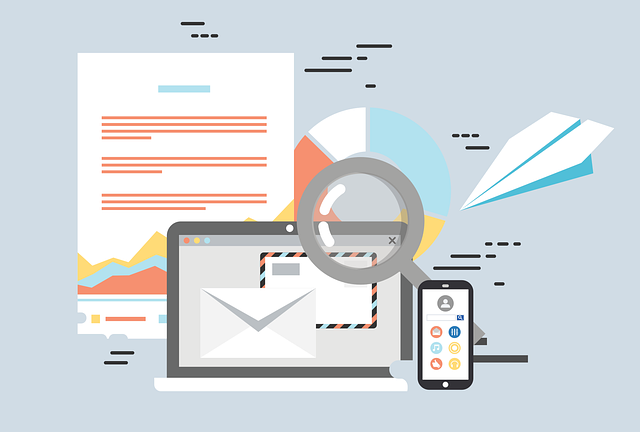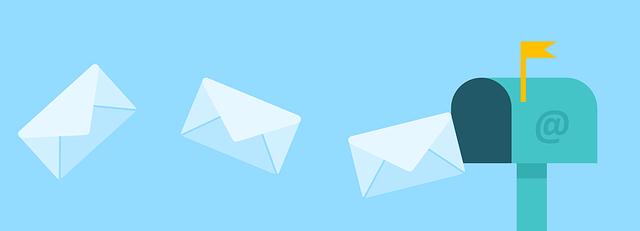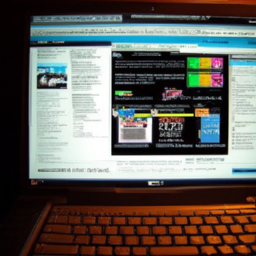So, you’ve decided to venture into affiliate marketing and you’ve heard that building an email list can greatly increase your chances of success. But where do you start? Don’t worry, I’ve got you covered. In this article, we’ll discuss various strategies that you can use to build an email list for affiliate marketing purposes.
How to Make Money with YouTube
Create an empire of automated video websites for multiple streams of income
First and foremost, it’s important to offer something of value to your potential subscribers. People are more likely to give away their email address if they believe they will receive something beneficial in return. This could be an exclusive discount, a free eBook, or access to valuable content. The key is to make it irresistible!
Once you have something valuable to offer, it’s time to promote it. Utilize all the tools at your disposal – social media, your website, blog posts, and even paid ads if you have the budget. Don’t be afraid to get creative and think outside the box. The more exposure your offer gets, the more likely people will be to sign up and join your email list.
In our next article, we’ll delve deeper into these strategies and discuss additional tactics that can help you build an email list for affiliate marketing purposes. Stay tuned and get ready to take your affiliate marketing game to the next level! Building an email list is a crucial step for any affiliate marketer looking to grow their business. An email list allows you to connect with potential customers, build trust, and ultimately increase conversions. In this article, we will explore effective strategies to help you build an email list for affiliate marketing purposes.
Choose a Target Audience
Before you start building your email list, it’s important to identify your target audience. Understanding who your ideal customers are will help you tailor your marketing efforts and create content that appeals to them.
Identify your target audience
To identify your target audience, consider the niche or industry you are working in. Who would be most interested in the products or services you are promoting? Conducting market research can also be helpful in gaining insights into your target audience.
Define their needs and interests
Once you have identified your target audience, it’s important to define their needs and interests. What problems are they trying to solve? What information are they seeking? By understanding their needs and interests, you can create valuable content that will attract and engage them.
Create a Valuable Lead Magnet
A lead magnet is a valuable offer that you provide to potential subscribers in exchange for their email addresses. It should be something that your target audience finds relevant and valuable.
Choose a relevant and valuable offer
When choosing a lead magnet, consider what your target audience would find useful. It could be an ebook, a checklist, a video tutorial, or any other form of content that provides value and solves a problem for your audience.
Design an attractive and compelling lead magnet
The design and presentation of your lead magnet are important factors that can influence whether someone decides to subscribe to your email list. Make sure it looks professional, visually appealing, and easy to consume.

Set Up a Landing Page
A landing page is a dedicated page on your website where visitors can opt-in to join your email list. It should be designed with a specific goal in mind – to capture the visitor’s email address.
Select a user-friendly landing page builder
There are many landing page builders available that are beginner-friendly and require no coding skills. Some popular options include Leadpages, Unbounce, and Instapage. Choose one that suits your needs and budget.
Craft a persuasive landing page copy
The copy on your landing page should clearly communicate the value of your lead magnet and convince visitors to provide their email addresses. Use persuasive language, clearly state the benefits, and include social proof or testimonials if available.
Drive Traffic to Your Landing Page
Now that you have set up your landing page, it’s time to drive traffic to it. There are several strategies you can use to attract visitors and encourage them to subscribe to your email list.
Utilize social media marketing
Social media platforms like Facebook, Instagram, and Twitter are great channels for promoting your lead magnet and driving traffic to your landing page. Create compelling social media posts, engage with your audience, and use relevant hashtags to reach a wider audience.
Leverage search engine optimization techniques
Optimizing your website and content for search engines can help you rank higher in search results and attract organic traffic. Research keywords relevant to your niche and incorporate them into your website copy, blog posts, and other content.

Capture Email Addresses
Once you drive traffic to your landing page, the next step is to capture email addresses from those visitors. An opt-in form is an essential element that allows visitors to subscribe to your email list.
Implement an opt-in form on your landing page
Place an opt-in form prominently on your landing page where visitors can easily see it. The form should be simple, with fields for the visitor’s name and email address. Consider using a tool like Mailchimp or ConvertKit to create and manage your opt-in forms.
Offer incentives for email opt-ins
To encourage visitors to subscribe to your email list, offer them an additional incentive, such as a discount, exclusive content, or access to a private community. This will make your offer more enticing and increase the chances of conversion.
Segment Your Email List
Segmenting your email list involves categorizing subscribers based on specific criteria. By segmenting your list, you can personalize your email marketing campaigns and deliver relevant content to different groups of subscribers.
Categorize subscribers based on demographics
One way to segment your email list is by demographics, such as age, gender, location, or occupation. This allows you to send targeted emails based on the interests and preferences of specific groups.
Utilize subscriber behavior data
Another effective way to segment your email list is based on subscriber behavior. You can track and analyze how subscribers interact with your emails, such as open rates, click-through rates, and purchase behavior. This data can help you tailor your emails to their specific needs and interests.

Craft Engaging Email Content
Once you have built your email list and segmented it, it’s important to create engaging email content that will keep your subscribers interested and wanting to open and read your emails.
Write personalized and relevant emails
Address your subscribers by their first names and personalize the content based on their interests and preferences. Make sure your emails provide value by offering useful information, tips, or exclusive offers.
Use attractive subject lines to increase open rates
The subject line is the first thing your subscribers see when they receive your email. Make it intriguing and compelling to entice them to open the email. Experiment with different subject lines and track their performance to see what works best for your audience.
Automate Email Campaigns
As your email list grows, manually sending emails to each subscriber becomes time-consuming and inefficient. By using an email automation tool, you can automate your email campaigns and save time.
Choose a reliable email automation tool
There are many email automation tools available, such as Mailchimp, AWeber, and GetResponse. Research and choose a tool that offers features and functionality that align with your needs and budget.
Create automated email sequences
An automated email sequence is a series of pre-written emails that are sent out to new subscribers at specific intervals. These emails can be educational, promotional, or a combination of both, with the goal of nurturing your subscribers and ultimately driving conversions.
Test and Analyze Results
Testing and analyzing your email campaigns is an important step to optimize your efforts and improve your results over time.
Track and analyze email open rates
One metric you should monitor is email open rates – the percentage of subscribers who open your emails. This can give you insights into the effectiveness of your subject lines, timing, and overall email content.
Conduct A/B testing for different email elements
To optimize your email campaigns, conduct A/B testing on different elements such as subject lines, call-to-action buttons, and email layouts. Test one element at a time and track the results to determine what resonates best with your audience.
Conclusion
Building an email list for affiliate marketing purposes is crucial for long-term success. By following the outlined strategies, marketers can effectively grow their email list and increase affiliate marketing conversions. Remember to choose a target audience, create a valuable lead magnet, set up a landing page, drive traffic, capture email addresses, segment your list, craft engaging content, automate email campaigns, and test and analyze results. With persistence and dedication, you can build a strong email list that will drive your affiliate marketing business forward.






